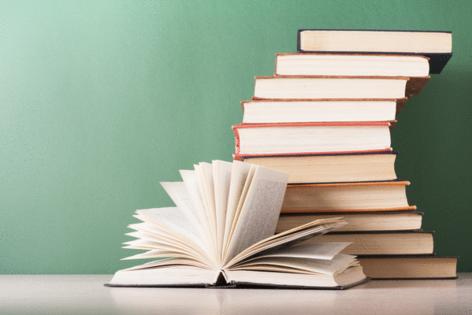Commentary: While schools are out, our youths need to continue to read
Published in Op Eds
As the summer approaches and the school year ends, schools across the country are concerned about the upcoming year and the federal cuts that may come with the dismantling of the U.S. Department of Education.
The concern is even more pressing considering a report released in January by the National Assessment of Educational Progress that shows that the reading proficiency for fourth and eighth graders in the United States continues to decline. Last year, their proficiency declined by 2 points compared with 2022. In fact, 19 states had a fourth grade reading score below the national average of 214. For eighth graders, 11 states had scores much lower than the national average of 257.
What we do know about educational data is there is often a decline in reading scores in the summer, which is referred to as “summer slope” or “summer slide.” Data from the Northwest Evaluation Association shows that third to fifth graders lose 20% of their school-year gains in reading.
This kind of data hits educators, including administrators, quite hard. What more can we do? Does this one biennial test represent all of what schools are doing to improve the reading skills of students throughout the year?
As we seek answers, what gets lost in the discussion is the myriad of variables that influence reading results and why they can be so volatile, particularly for young readers, whose foundational skills have yet to develop.
When youths don’t read enough, their reading score results will often stagnate or decline. Average instructional time for a student in the United States is 5.7 hours per day. Reading represents only a portion of that time. If the only time young people read books is when they are at school, reading scores across our nation will not improve.
Now more than ever, it’s important that our youths continue to read throughout the summer. For those students not attending summer school, it’s essential that parents and caregivers designate times for their children to read, even on vacation. That means putting some limits on use of devices. If the family is traveling, requiring reading can prove to be beneficial.
Neuropsychology and Education Services for Children and Adolescents, a practice in New England, recommends that children read at least 20 minutes per day after being in school all day. It will expose them to 1.8 million words in one school year. During summer break, continuing that practice can have a profound impact on reading efficiency for students, preventing some of the reading loss that happens during summer break.
Having youths not only visit the library but also obtain a library card is recommended. The American Library Association maintains that library cards fuel academic achievement. Through the summer, many libraries host events and activities to engage youths and can encourage them to become lifelong readers.
Unfortunately for education in our country, the budget proposed by President Donald Trump, known as the “Big, Beautiful Bill,” may result in 40 federal K-12 programs being cut. The president’s budget proposal keeps top-line funding intact for the Education Department’s two biggest sources for schools, Title I and the Individuals with Disabilities Education Act, an analysis by Education Week says.
However, the bill asks Congress to eliminate nearly four dozen other grant programs that provide services for specific K-12 student populations. It comes down to a proposed cut of $12 billion to the U.S. Department of Education budget at the beginning of the new fiscal year on Oct. 1.
School districts may have to do more with less. With reading data continuing to show a decline, it’s more than concerning. It makes this summer, and summers in the foreseeable future, particularly important.
President John F. Kennedy once said: “Children are the world’s most valuable resource. And its best hope for the future.” How we meet the challenges of the future, compete in this global economy and stay on the cutting edge of technological improvements and advancements depends on how educated our youths are.
It’s important to understand that the learning loss that COVID-19 caused is still being felt. Data from the Harvard Graduate School of Education states that when a student experiences learning loss due to an interruption, students generally recover 20% to 30% of the lost ground the first year but typically make no more recovery in the next three to four years.
So much work has to be done. We can start by making certain our youths continue to pick up a book and read over the summer. Perhaps our iconic and talented entertainers Beyonce, Taylor Swift, Shaboozey and others can lead the way and positively influence our youths by saying, “Summer reading is summer fun.”
_____
______
©2025 Chicago Tribune. Visit at chicagotribune.com. Distributed by Tribune Content Agency, LLC.

























































Comments